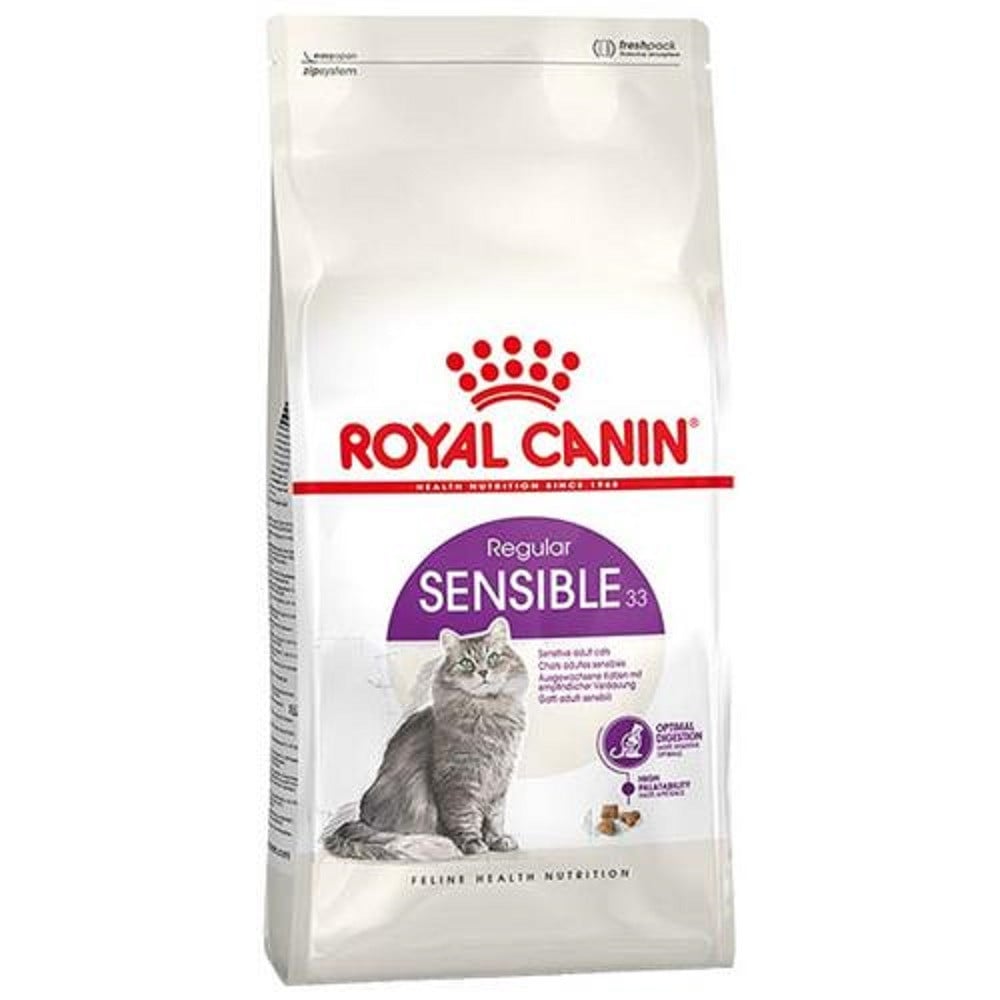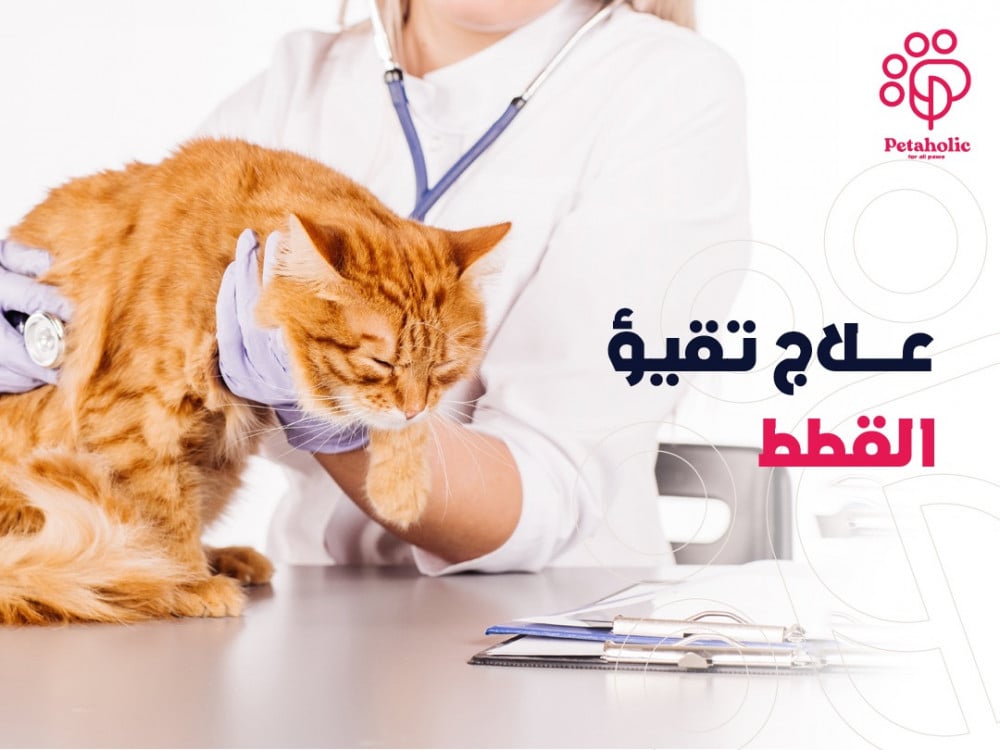
You've probably seen your cat vomit at one time or another. It is common for cats to vomit, but it is not normal for a cat to vomit. However, it's not always something that needs to be treated, and a cat doesn't need to rush to the vet every time it vomits. In this guide, you'll learn when you should take your cat to the vet, why he's vomiting in the first place, and what cat vomiting treatment is to help cats get better. You will also find in Petaholic all the necessary supplies to care for your cat at this stage.
What types of cat vomiting treatment are most effective?
In fact, treatment for cat vomiting depends largely on the cause, and prescribing treatment for each individual cause is beyond our scope and is solely up to your veterinarian's diagnosis. However, we can make some generalizations of common and effective types of treatment for cat vomiting.
1.Liquids
If a physical examination reveals no abnormalities, your vet may opt for just simple symptomatic treatment, such as administering subcutaneous fluids. Even if your cat is not dehydrated, giving him fluids may be important to clean out his system and keep him hydrated. A cat who is vomiting is also likely to be slightly dehydrated, due to fluid loss from vomiting and failure to retain water in the body.
Dehydration is a big problem in itself, and this means that when a cat becomes dehydrated, he does not feel well, so he stops eating and drinking, and may vomit more. This makes her more dehydrated, which makes her feel worse, and therefore less likely to eat and drink, and then she becomes even more dehydrated, and the closed loop continues.
Some form of fluid therapy is given for almost every cause of vomiting. If your cat is dehydrated or severely weak, the doctor will often recommend intravenous fluids. This involves placing a catheter into a vein and giving the cat fluids through it. It is a more direct method of giving fluids, and more fluids can be given through this method throughout the day. The downside is that administering intravenous solutions is expensive and requires the cat to remain in the clinic. However, especially in severely dehydrated cats, fluids are not absorbed under the skin very well, and intravenous fluids are needed to help the cat.
2. The most common treatment for cat vomiting is antiemetic
Another common treatment for most types of vomiting is to give an antiemetic medication, which can help stop vomiting, thus reducing fluid loss. These medications can also help relieve abdominal discomfort and make the cat more likely to eat. These medications usually cause no harm, but they do not provide adequate pain control. Therefore, the doctor recommends adding a pain reliever to the cat's treatment plan.
3. Change the diet
For cats who vomit acutely or chronically to a frightening degree, one of the most important treatments is to change their diet. If your cat is experiencing severe vomiting, this may involve a temporary change to an easily digestible diet such as Royal Canin, meat-flavored baby food without onion or garlic, or boiled chicken. Keep in mind that chicken and baby food are not complete diets for cats and therefore should only be used for a few days.
If a new food controls vomiting, the cause may be in part a diet intolerance, allergy, or perhaps low-grade inflammatory bowel disease. When it comes to trying new diets for cats who chronically vomit, you can try the new diet for several weeks to see if it works.
To help your cat stop vomiting and change its diet to a healthier one, we recommend that you purchase:
Royal Canin for sensitive stomach
Shop the product here with Petaholic, your first pet friend
What is the treatment for cat vomiting at home and how do you deal with it before going to the vet?
Searching for treatment for vomiting, we found the following:
A very short fast!
Going without food for a period of time is often recommended as a home remedy for vomiting, but cats are unique in this regard. Cats that do not eat enough calories, even for relatively short periods of time, are more likely to develop liver disease. However, it is a good idea for your cat to fast for only 8 to 12 hours. Skipping a single meal won't do any harm, and can give your cat's upset stomach a chance to empty and get some relief. But leave fresh, clean water available to prevent dehydration.
Mix cat food with something that is easy to digest
Feeding your cat a bland, easy-to-digest food is another way to give relief to the digestive system and treat cat vomiting in general, but wait at least 3 to 4 hours after the last bout of vomiting. If your cat persists, you can continue offering small portions every few hours, and even mix a little white rice into the cat's food.
Slowly return to your cat's regular food once she seems to be back to normal. You should know that chicken and rice are not nutritionally complete or balanced. So don't feed them alone for more than a few days. Gradually mix increasing amounts of food with decreasing amounts of chicken and rice until your cat is eating only regular cat food after 3 to 5 days or so.
Among the distinctive products that we recommend in your cat’s diet to stop vomiting are:
Hills Science Plan Indoor Cat Care for Chicken Hairballs
Shop the product here with Petaholic, your first pet friend
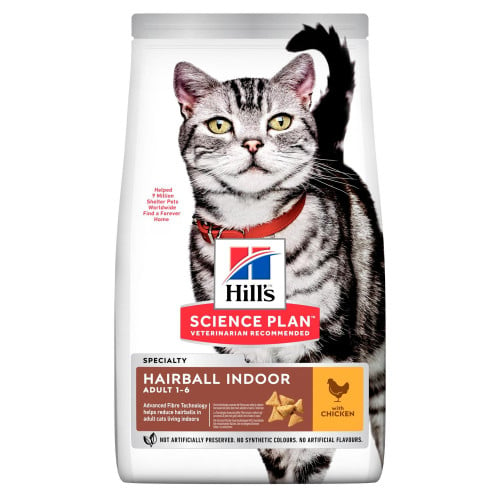
What are the causes of cat vomiting to avoid?
The causes of acute or chronic vomiting can be the same, but there are exceptions. Toxins are generally not a cause of chronic vomiting (unless the cat is chronically exposed to the same toxin, such as eating a poisonous plant). Ingestion of a foreign object is not usually a cause of chronic vomiting, although if the object remains in the stomach, it may be a cause of chronic vomiting. Unfortunately, chronic vomiting is a very vague symptom, and the causes are varied as well. In fact, almost any cat disease can lead to vomiting. In general, causes of vomiting can be classified into one of these categories: toxins, medications, diet (including eating inappropriate things), stomach, intestines, organ dysfunction, endocrine, nervous system, cancer. In each of these categories there are dozens of specific diseases and syndromes. Some of the most common reasons are mentioned below:
- Poisons: Lilies
- Medications: chemotherapy, antibiotics, anti-inflammatories
- Diet: Dietary intolerance to something in the food, sudden change in diet, eating spoiled food.
- Stomach diseases: foreign bodies, ulcers, stomach infections.
- Intestine: foreign bodies, acute inflammation, chronic inflammatory bowel disease, cancer, constipation.
- Organ dysfunction: liver and kidney disease, pancreatitis.
- Endocrine: hyperthyroidism, high calcium.
- Nervous system: encephalitis, cancer.
For a diet that prevents vomiting and helps your cat stay healthy and free from diseases:
- Shop the product here with Petaholic, your first pet friend
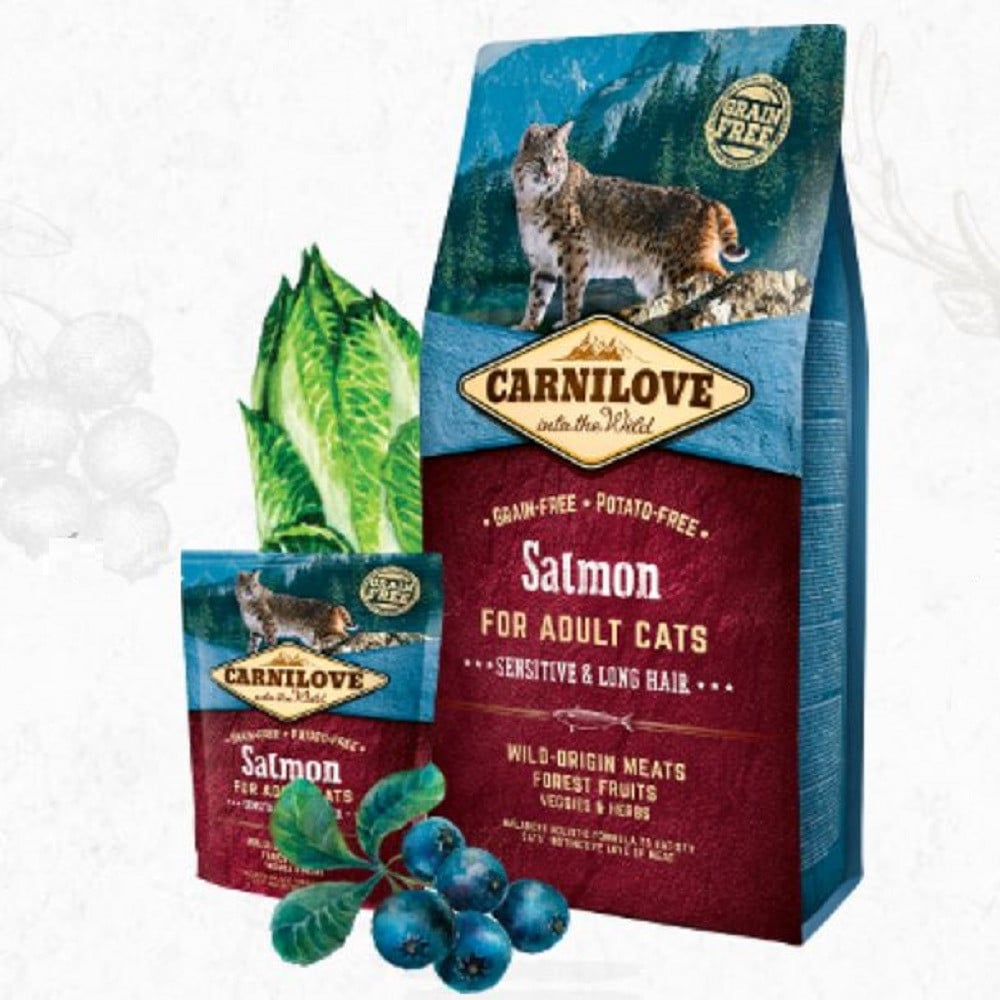
In the end, vomiting is not a specific disease or diagnosis in itself, but it is a sign of a problem. By following the instructions in this guide, you can help your cat get rid of this painful symptom for them and prevent it as well. You will also find in Petaholic all the foods and supplies that will help you in this task at the best prices.
What causes vomiting and diarrhea in cats?
Cat vomiting and diarrhea may be signs of a health problem, and there are several possible causes for these symptoms. These reasons can include:
1. Change in diet:
Vomiting and diarrhea may occur when the cat is exposed to a change in the type of food or when eating a new food. New feedings should be introduced gradually to avoid gastrointestinal shock.
2. Eating foreign substances:
- If your cat is playing with strange objects or swallowing foreign objects, vomiting may occur as part of the body's attempt to get rid of these materials.
3. Parasitic infection:
- Worms and internal parasites such as tape parasites may cause problems in the digestive system, leading to vomiting and diarrhea.
4. Bacterial or viral infections:
- Intestinal infections caused by bacteria or viruses can cause vomiting and diarrhea.
5. Chronic diseases:
- Some chronic diseases, such as kidney or liver problems, can appear with symptoms such as vomiting and diarrhea.
6. Food allergies:
Some cats may be sensitive to some food ingredients, which leads to vomiting and diarrhea.
Book your appointment now from here with Petaholic home services with equipped cars delivered to your door with a specialized team
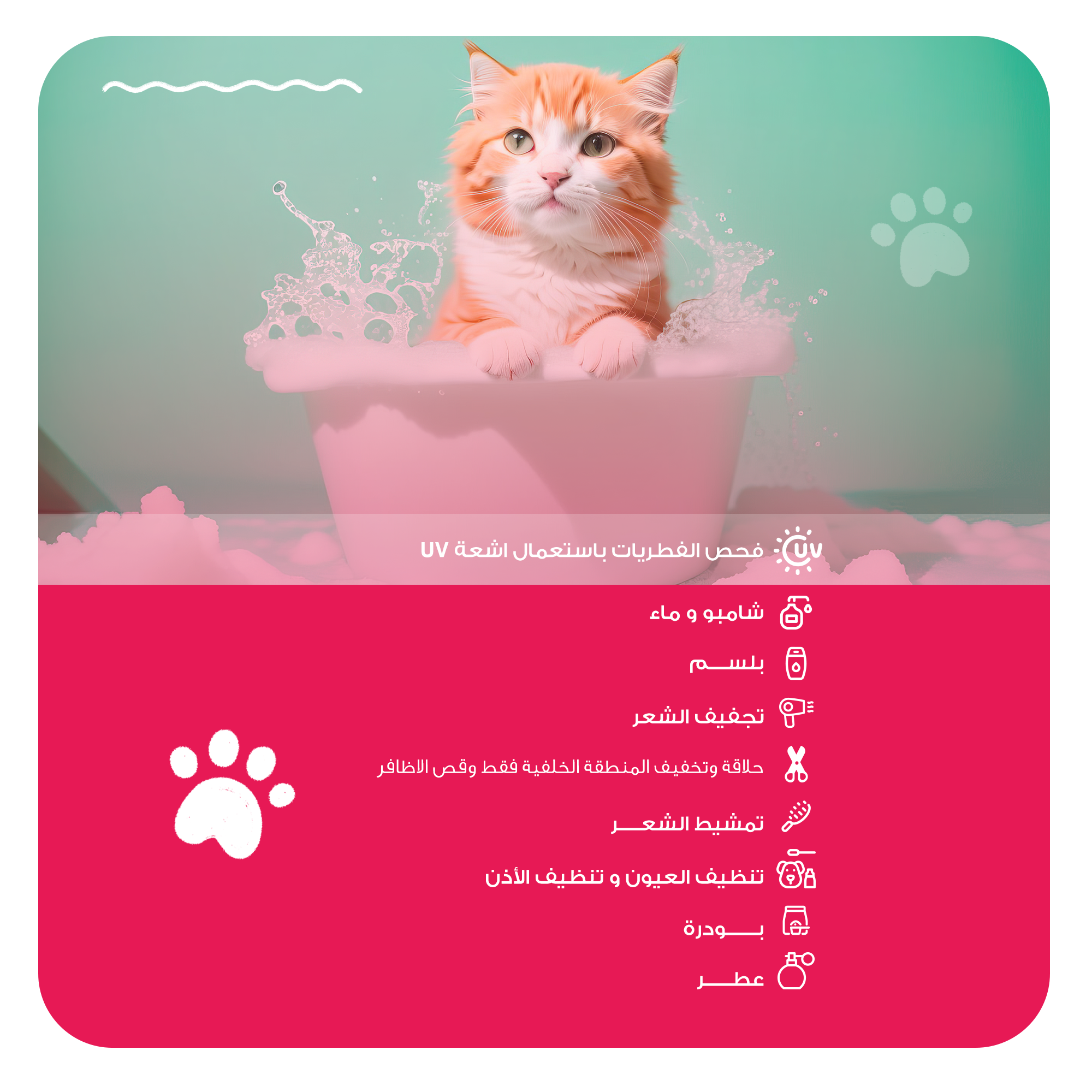
Read also:-
Everything you want to know about ways to treat constipation in cats
What are the common cat diseases and their symptoms?
How to treat anorexia in kittens


